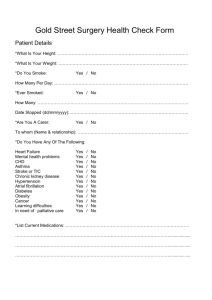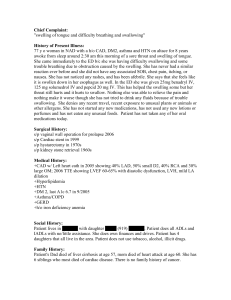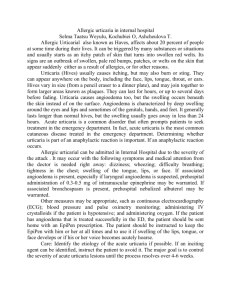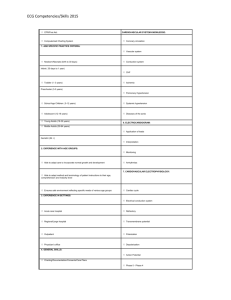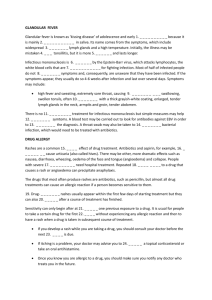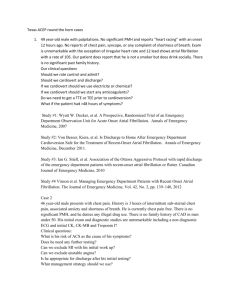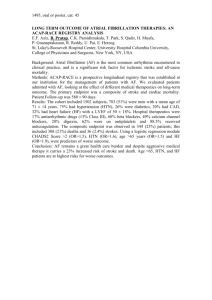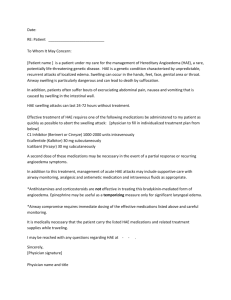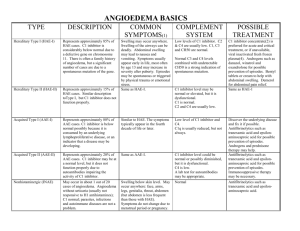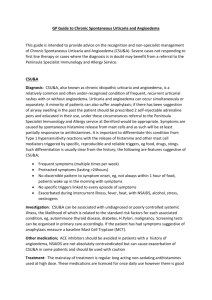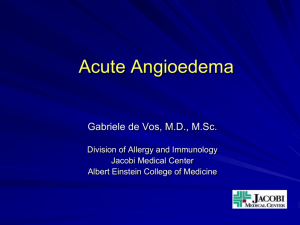angioedema: an uncommon but potentially life
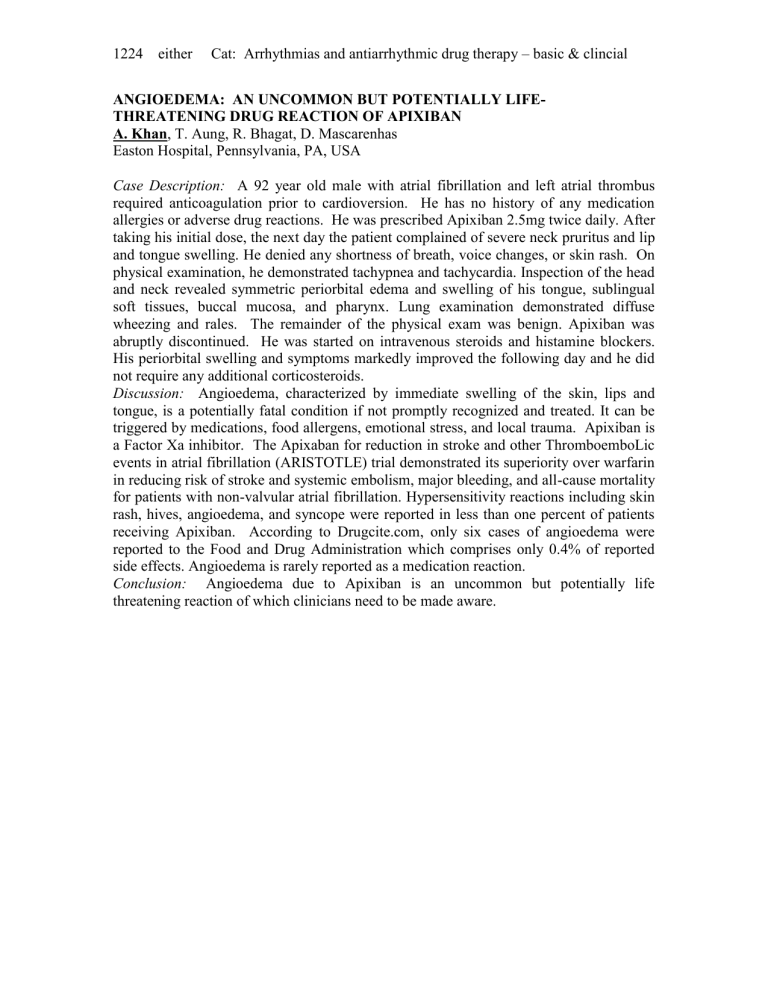
1224 either Cat: Arrhythmias and antiarrhythmic drug therapy – basic & clincial
ANGIOEDEMA: AN UNCOMMON BUT POTENTIALLY LIFE-
THREATENING DRUG REACTION OF APIXIBAN
A. Khan , T. Aung, R. Bhagat, D. Mascarenhas
Easton Hospital, Pennsylvania, PA, USA
Case Description: A 92 year old male with atrial fibrillation and left atrial thrombus required anticoagulation prior to cardioversion. He has no history of any medication allergies or adverse drug reactions. He was prescribed Apixiban 2.5mg twice daily. After taking his initial dose, the next day the patient complained of severe neck pruritus and lip and tongue swelling. He denied any shortness of breath, voice changes, or skin rash. On physical examination, he demonstrated tachypnea and tachycardia. Inspection of the head and neck revealed symmetric periorbital edema and swelling of his tongue, sublingual soft tissues, buccal mucosa, and pharynx. Lung examination demonstrated diffuse wheezing and rales. The remainder of the physical exam was benign. Apixiban was abruptly discontinued. He was started on intravenous steroids and histamine blockers.
His periorbital swelling and symptoms markedly improved the following day and he did not require any additional corticosteroids.
Discussion: Angioedema, characterized by immediate swelling of the skin, lips and tongue, is a potentially fatal condition if not promptly recognized and treated. It can be triggered by medications, food allergens, emotional stress, and local trauma. Apixiban is a Factor Xa inhibitor. The Apixaban for reduction in stroke and other ThromboemboLic events in atrial fibrillation (ARISTOTLE) trial demonstrated its superiority over warfarin in reducing risk of stroke and systemic embolism, major bleeding, and all-cause mortality for patients with non-valvular atrial fibrillation. Hypersensitivity reactions including skin rash, hives, angioedema, and syncope were reported in less than one percent of patients receiving Apixiban. According to Drugcite.com, only six cases of angioedema were reported to the Food and Drug Administration which comprises only 0.4% of reported side effects. Angioedema is rarely reported as a medication reaction.
Conclusion: Angioedema due to Apixiban is an uncommon but potentially life threatening reaction of which clinicians need to be made aware.
